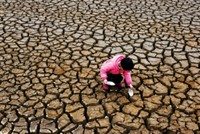Advertisement
Grab your lab coat. Let's get started
Welcome!
Welcome!
Create an account below to get 6 C&EN articles per month, receive newsletters and more - all free.
It seems this is your first time logging in online. Please enter the following information to continue.
As an ACS member you automatically get access to this site. All we need is few more details to create your reading experience.
Not you? Sign in with a different account.
Not you? Sign in with a different account.
ERROR 1
ERROR 1
ERROR 2
ERROR 2
ERROR 2
ERROR 2
ERROR 2
Password and Confirm password must match.
If you have an ACS member number, please enter it here so we can link this account to your membership. (optional)
ERROR 2
ACS values your privacy. By submitting your information, you are gaining access to C&EN and subscribing to our weekly newsletter. We use the information you provide to make your reading experience better, and we will never sell your data to third party members.
Environment
Top Brass Fear Climate Change
Retired military leaders warn of global instability
by Jeff Johnson
April 23, 2007
| A version of this story appeared in
Volume 85, Issue 17
THREATS TO national security from climate change are large and should be considered an integral part of U.S. security and defense planning. Those are among the conclusions in a report released last week by a panel of 11 retired high-ranking admirals and generals.
The study, "National Security and the Threat of Climate Change," was organized by the nonprofit corporation CNA. Particularly for already fragile parts of the world, climate change is a "threat multiplier," the military leaders said in the report, which would exacerbate conditions that lead to failed states and create a breeding ground for extremists and terrorists.
They warned of extreme storms, drought and flooding, sea level rise, and a host of environmental calamities that, unless abated, would result in massive migrations of people, famine, greater border tensions, and conflicts over food and water.
Consequently, the U.S. should play a stronger national and international role to help stabilize climate change at levels necessary to avoid disruption to global security, the report said.
"There is a relationship between carbon emissions and our national security," said retired Gen. Gordon R. Sullivan, panel chairman and former Army chief of staff. The evidence is there, he continued, adding that "we have to start paying attention."
"People are saying they want to be perfectly convinced about climate science projections," Sullivan said, "but speaking as a soldier, you never have 100% certainty."
Panel member and retired Marine Corps Gen. Anthony C. Zinni said, "We will pay for this one way or another. We will pay to reduce greenhouse gas emissions today. Or we will pay the price later in military terms that will involve human lives."
Similar security warnings were voiced in a 2004 Pentagon report that laid out devastating scenarios resulting from rapid climate change (C&EN, March 1, 2004, page 10). Last week, for the first time, the United Nations Security Council took up climate change and its impact on global security. At the same time, a newly formed House select committee discussed legislative proposals to require that the Department of Defense consider climate change as a security issue.
The report is available online at http://SecurityAndClimate.cna.org.



Join the conversation
Contact the reporter
Submit a Letter to the Editor for publication
Engage with us on Twitter